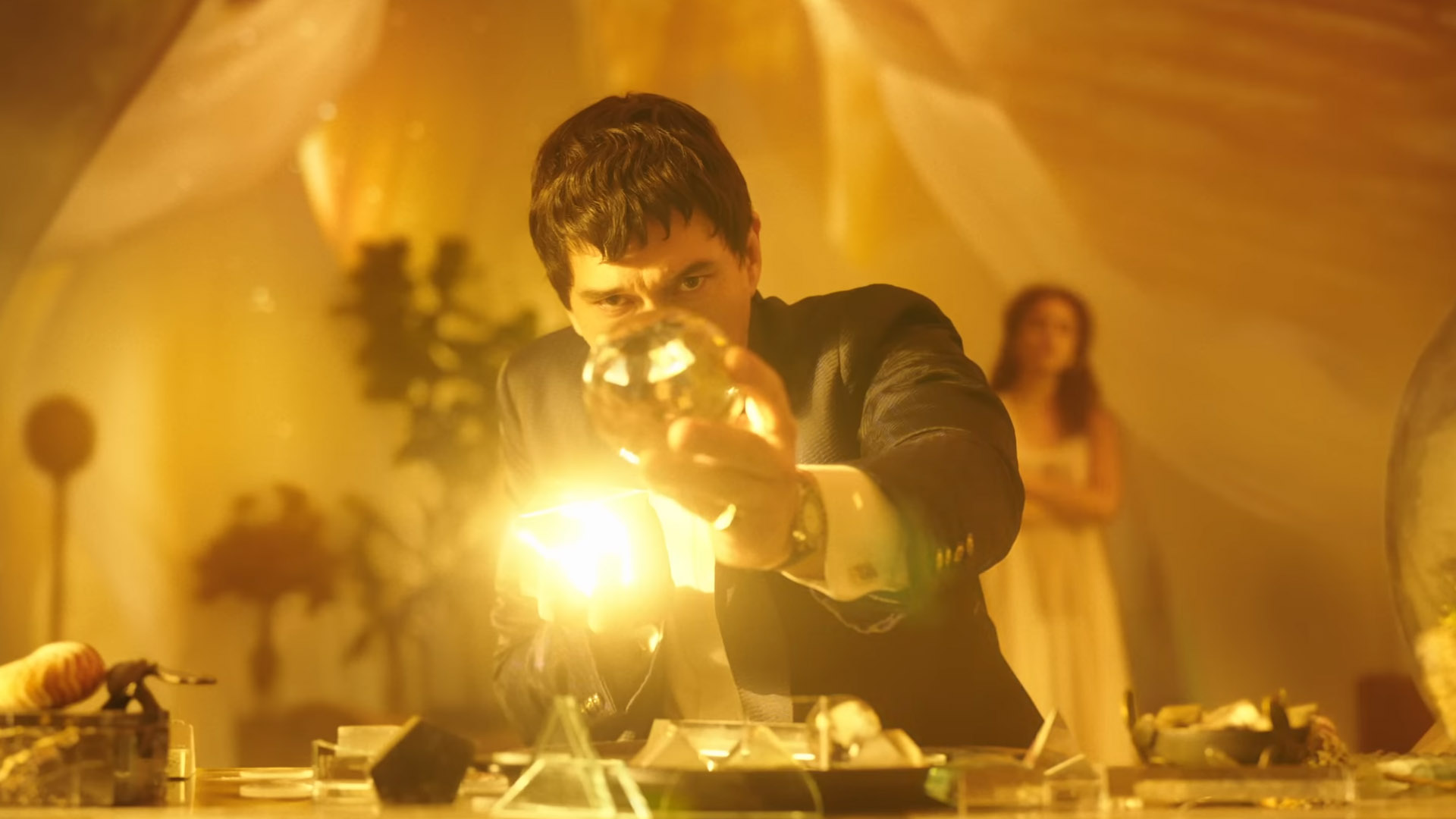
Francis Ford Coppola bet a lot on his newest release in theaters. The director of multiple legendary films that stand as the best ever produced sold part of his stake in his winery empire to self fund the film to the tune of $120 million. The film has taken years for him to get off of the ground helping to provide its release with some extra anticipation. Many cinephiles were anxious to see if it would live up to the hype and help add to the legend of the director in the twilight of his career.
Megalopolis takes place in the fictional large city of New Rome, a sort of New York City stand in, presided over by Mayor Franklyn Cicero (Giancarlo Esposito). His status quo vision for the decaying city’s future is at odds with the idealist vision of famed genius architect Cesar Catilina (Adam Driver) who is seeking to demolish and rebuild a section of the city into a sustainable utopia using a material called Megalon that also gives him the power to control space and time. Cesar’s power and ambition catches the eye of Julia Cicero (Nathalie Emmanuel), the Mayor’s daughter, who is searching for meaning in her life in lieu of her current partying socialite ways. Their love affair soon makes Cesar the target of Clodio Pulcher (Shia LaBeouf), Cesar’s cousin and son of banking magnate Hamilton Crassus III (Jon Voight) who has his own crush on Julia. Clodio teams up with Cesar’s mistress and TV host Wow Platinum (Aubrey Plaza), to both overthrow his father as head of Crassus National Bank and end Cesar’s potential of reshaping New Rome.
Coppola has famously explained that Megalopolis is a labor of love more than two decades in the making, having gone through various drafts over that period of time. His passion project is just as ambitious in scope as it was in development with the director seeking to tell a fable that lays bare our country’s penchant for greed, corruption, and shortsightedness at the expense of building a better tomorrow. It’s a concept more than worthy of examination, but unfortunately Coppola’s straightforwardness in exploring these themes ends up blunting any potential impact it could have had by making Megalopolis too obvious and unambiguous in its messaging. This is probably best encapsulated by the portrayal of the decadence of the Clod siblings Clodio, Clodia (Chloe Fineman), Claudette (Madeleine Gardella), and Claudine (Isabelle Kusman). The group is presented as overindulgent due to their wealthy, spoiled upbringing to the point of engaging in open incest in an overt and obvious way that spills over into near parody. The lack of subtlety ends up blunting any point regarding society’s indecency that Coppola seeks to make. Effective symbolism touches audiences with lace gloves rather than boxing gloves, a point that is lost in making the Clod kids so obvious in what they’re attempting to represent.
In addition to the puzzling directing and script choices made in the film, its acting choices result in a bizarre cinematic experience as well. Coppola foresaw Megalopolis as being a retelling of the fall of Rome set against a modern American backdrop in order to draw a parallel between the two empires. This extends to the wardrobe choices for the characters with capes being adorned on Cesar and Crassus so that they resemble Roman togas and toward the dialogue which uses old ancient, willowy prose that sounds like Shakespeare’s plays set in the ancient Roman world. While you can see what Coppola was aiming toward in melding the two worlds visually and vocally, what results instead is an awkward hodgepodge with stilted dialogue that is delivered in a wooden and stilted manner. The old dialogue juxtaposed with a post-modern environment makes the characters feel unnatural and therefore not real, killing any chance at audience immersion or suspension of disbelief. You know you’re watching a movie, a bad one at that, and it prevents viewers from connecting to the characters, their story, and becoming invested in either.
Adding to the film’s issues is the wild variation in tone throughout both in terms of structure and plot and the acting performances. LaBeouf and Plaza often times feel like they’re acting in a completely different film from their counterparts with LaBeouf leaning into the camp of the flamboyant but manipulative Clodio and Plaza displaying her trademark deadpan humor. Had the film and their cast mates existed on the same plain, the performances would work, but the two actors seem to be the only ones unaware they were cast in an epic drama, contrasted with the seriousness of Driver, Emmanuel, and Esposito. The wild shifts in tone are also present within the story itself as at times, Megalopolis is a political drama about the tug of war between politicians and an industrialist over the future of a declining city, and others it delves into the science fictional and supernatural as said industrialist has the ability to control time itself and this fact is treated as just an extension of his natural genius and not a superhuman power that those who witness it should be treating with extreme shock and awe instead of subdued momentary wonder. The constant back and forth between straightforward dramatic storytelling and surrealism/sci-fi makes the film a confusing watch.
The concept of exploring American decadence and greed through the allegory of the fall of the Roman Republic and rise of the Roman Empire is a good idea and one full of potential. Unfortunately, Francis Ford Coppola’s vision and ambition don’t match up to the final product presented. The film is disjointed, unorganized, and tonally inconsistent with the direction of the actors not up to par either. It’s independent production also shows in the film’s visual effects and CGI which often stands out as being green screen in origin. Megalopolis is a film with very few redeeming qualities and a poor late stage entry in the filmography of a legendary director.
Image: Lionsgate

